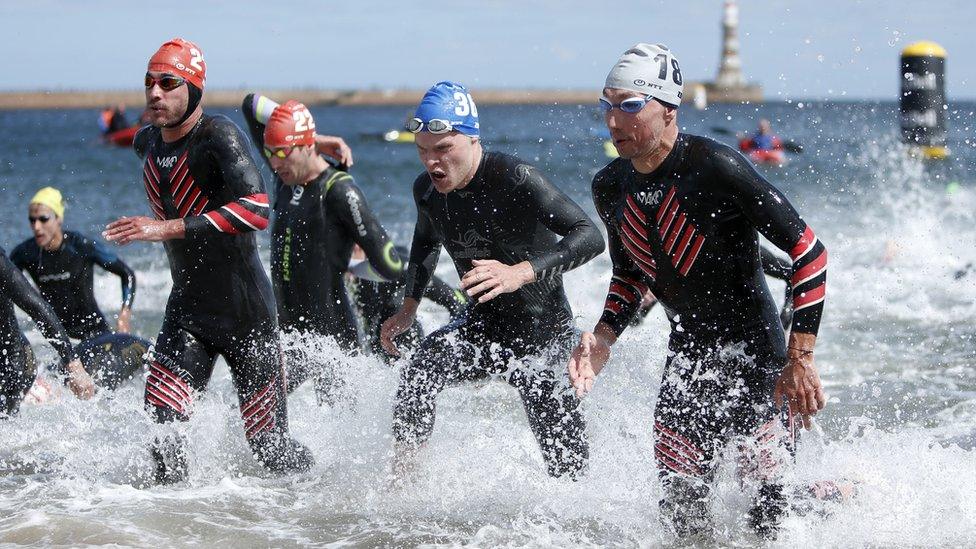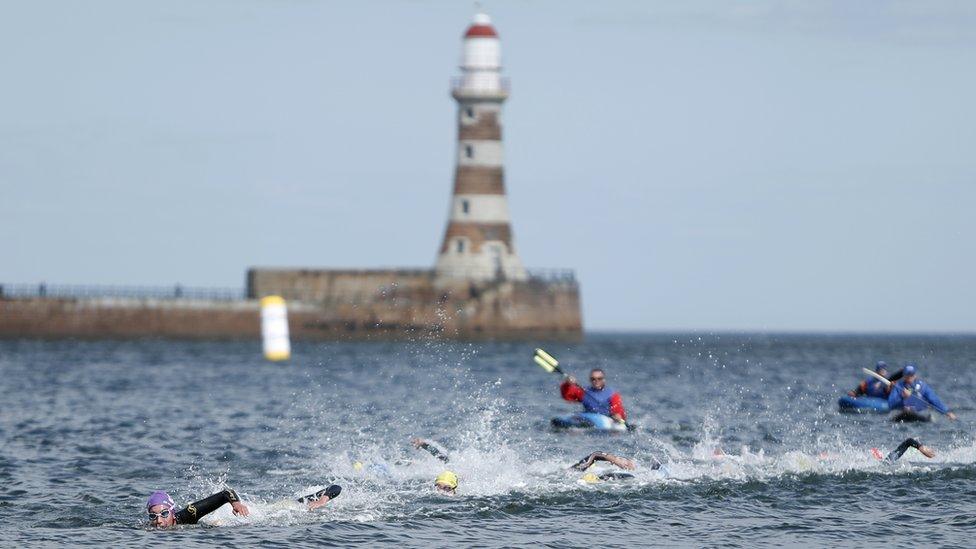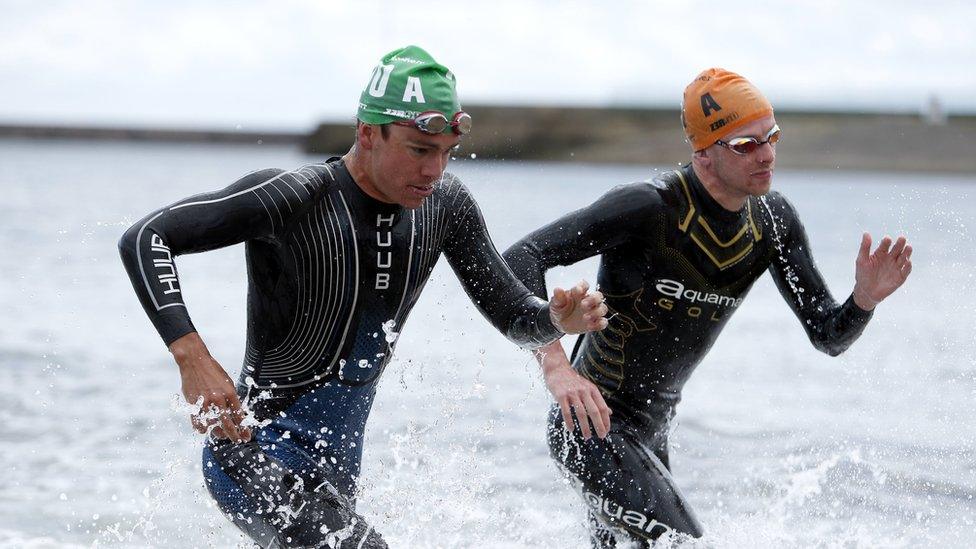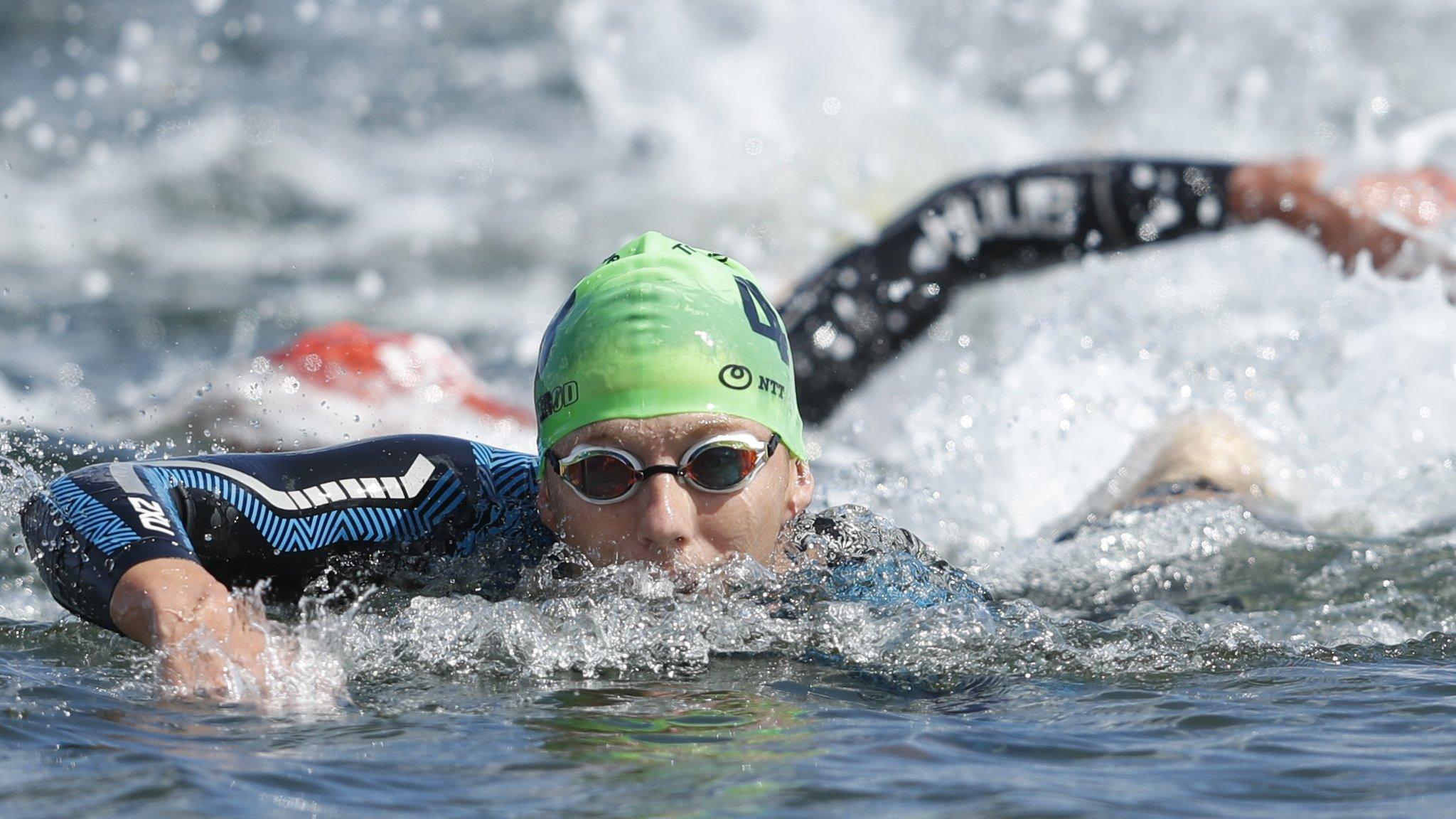Norovirus 'most likely' cause of Sunderland triathlon illness
- Published

Health officials say it may not be possible to determine the source of the norovirus infections
Norovirus was the "most likely" cause of illness among competitors in the UK leg of the World Triathlon Championship Series, health officials have said.
Eighty-eight people have now reported suffering diarrhoea and vomiting after the event in Sunderland last month.
The UK Health Security Agency (UKHSA) said 19 of 31 submitted samples - 60% - showed norovirus.
It added it "would not be possible" to confirm whether the illness was a result of participation in the event.
The remaining 12 samples either tested negative or were positive for other viruses, UKHSA said.
Alongside the elite races, about 2,000 people took part in a series of combined swimming, cycling and running events across 29 and 30 July.
'Easily transmitted'
Concerns were later raised by competitors about water quality results from 26 July which displayed high E.coli levels.
While there had been no lab-confirmed reports of micro-organisms such as E.coli O157/STEC, which can cause severe gastrointestinal illness, UKHSA said other E.coli was present in four samples.
However, releasing its preliminary findings, it explained "people can naturally carry organisms in their gut, and so it would not be possible to say whether they had a positive result due to their participation in the event or that they were already carrying these organisms".
UKHSA added: "It is not uncommon to detect more than one infection following testing of faecal samples, but the predominance of norovirus makes it the most likely explanation of illness in participants.
"Norovirus is very easily transmitted through contact with people with the infection and any food, water, surfaces or objects that have been contaminated with the virus.
"Although investigations continue, the exact source of the infections may not be possible to determine."

The swim leg of the triathlon events took place at Roker Beach
Sunderland City Council said it was "sorry to hear" a number of people had been unwell but hoped "these findings reassure those who live in and visit our area that our award-winning blue flag beaches are safe to swim from".
British Triathlon welcomed the report and said it was "very grateful to everyone who has co-operated with the investigation".
It said it had conducted several independent water quality tests in the swim area and "all were confirmed as excellent in accordance with EU bathing water directive standards".
It previously said the 26 July water test by the Environment Agency had been conducted outside the swim area at Roker.

Follow BBC North East & Cumbria on Twitter, external, Facebook, external and Instagram, external. Send your story ideas to northeastandcumbria@bbc.co.uk, external.
Related topics
- Published6 August 2023

- Attribution
- Published3 August 2023
